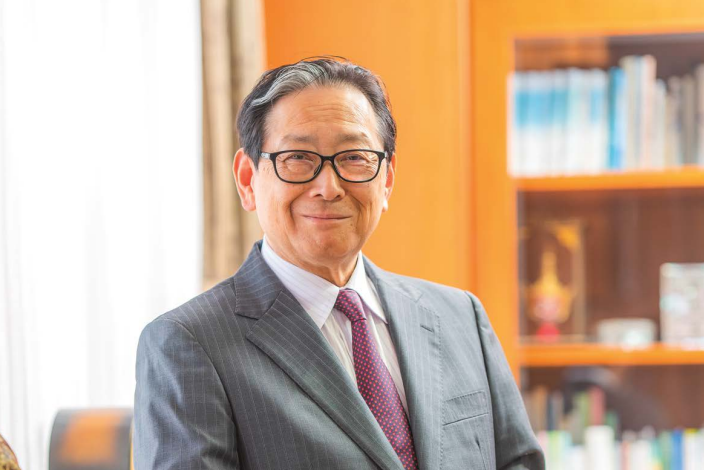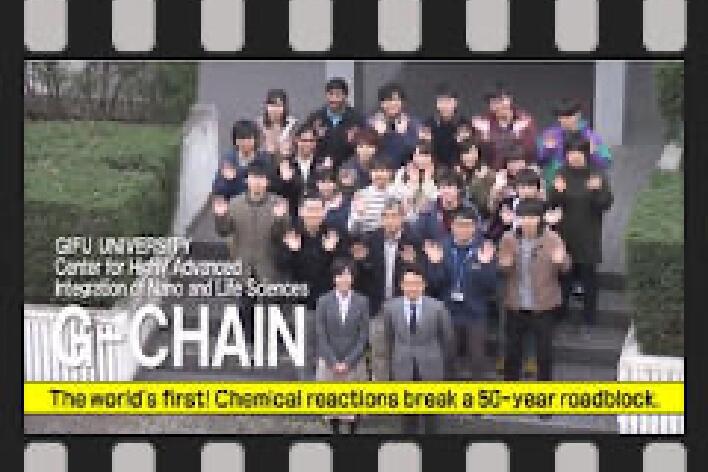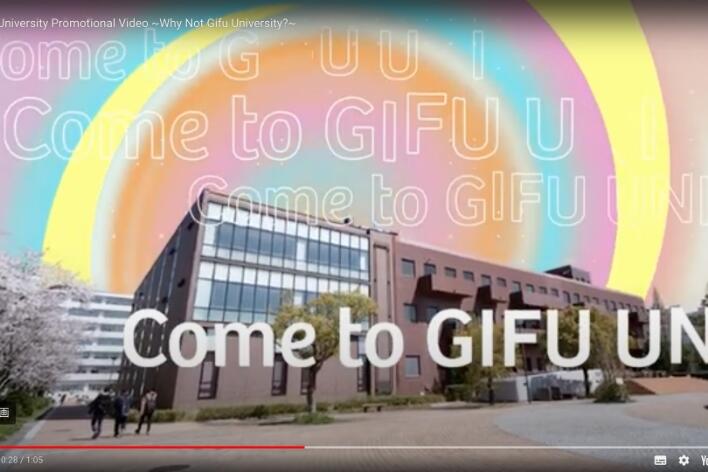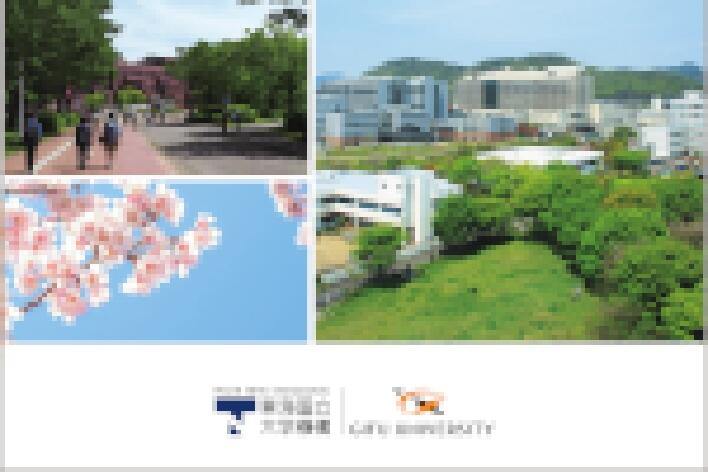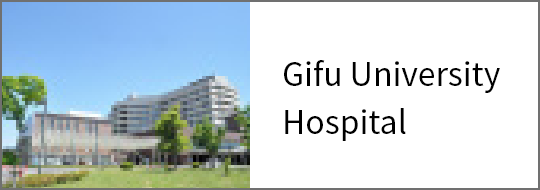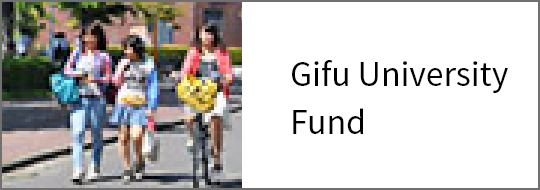Entrance Ceremony for 2016
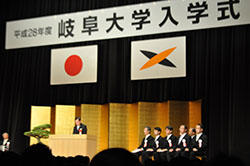
To all of the new students, congratulations on admission to our university. We are extremely pleased to have 1,361 new entrants to our campus today, and on behalf of the Gifu University faculty, I welcome all of you. I am sure you are happy about joining us and eager to learn, and we are very glad that we will be able to share your sense of freshness and to join you in your new place of study. I would also like to take this opportunity to give our congratulations to all the people who have supported you till now.
To begin my remarks, I would first like to consider what it means to study at a university. I would also like to note a few things that, as university students, I want you to keep in mind.
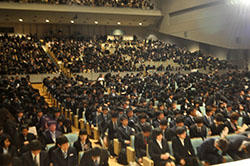
Firstly, you should realize that the way in which you study here will be entirely different from the way you have studied in the past. As high school pupils, you were at a school. Beginning today, you are at a university. You were before taught in classes, but from now on, you will attend lectures. Before, you were just pupils. Beginning today, you are university students. So how are these different? In your time here, in addition to existing academic disciplines, you will study the distinctive fields of natural sciences, human sciences, and social sciences that the faculty have helped to establish through nearly enormous amounts of work. Upon studying these disciplines, you will create your own scientific discipline, and by this I mean that you will establish ways of thinking about things on your own. This is what it means to study at a university.
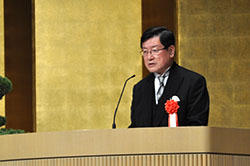
To accomplish this, it is essential that you have a fundamental grounds. Only when you have such grounds, you will receive a higher, advanced education. These grounds consist of liberal arts education. In some old libraries in the West, for example, these are represented by figures of seven goddesses flying high above the hall. To use strictly classical terms, these are rhetoric, grammar, astronomy, logic, algebra, geometry, and art, as well as philosophy that unifies the above seven. At present, of course, there are probably few subjects in the modern era whose direct objective is one of these, but in addition to your advanced, specialized education, I ask that you also try to aim for the goal of getting a liberal arts education as well. The reason is that it will form the foundation of your role as a member of society, which I would like to talk about briefly.
All of you are already members of society, with the right to vote. You are all ladies or gentlemen. Your studies at university are made now upon your own responsibility as adults. From the moment you enter this campus as new university students, all of us―as well as society that―see you as ladies and gentlemen. We expect that you are ladies and gentlemen both at university and in the lives you lead. I would like all of you to take every opportunity you can to strive to be ladies and gentlemen.
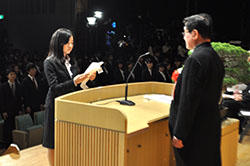
Next, I would like to touch on the long, proud history of Gifu University. I will then talk about the Gifu University's vision for the future, which is a plan that covers roughly the next decade, when the students here today will already have graduated and, I am confident, will have become indispensable members of society. Gifu University was founded in 1949, but each faculty has its own roots, which are generally much older. For example, Gifu Prefectural Normal School was established in 1873, and is now the Faculty of Education. They celebrated the 140th anniversary last year. Thus Gifu University is the fourth oldest university in Japan. You can trace the history of Gifu University by a variety of archives both on and off campus, which I recommend you do as it is quite interesting.
Now I would like to talk about Gifu University's grand vision covering the period to 2025, a summary of which has been included as an insert in your ceremony program (http://www.gifu-u.ac.jp/about/objectives/vision.html). I will mention only the most important aspects. To begin with, Gifu University "aims to be not only a center of community revitalization, but also a center for nationwide and international education and research in fields in which the university possesses strengths and distinctiveness." Large columns represent the five major strategies to achieve these objectives, below which are concrete examples of efforts towards those ends. I ask that each student reviews the vision for his or her faculty or department. In fact, we have already declared the University to be an international and national center of education and research in the fields of life sciences, environmental sciences, next-generation die and composite materials research, and medical education and research. Also, we are in the midst of establishing other fields to follow.
Today, however, I would particularly like to focus on our collaborations in the contexts of our role as a center for community revitalization and global contributions. By "community" here, we of course do not mean just our prefecture, city, or the Chubu region. Instead, we intend a much broader platform, one capable of serving as the launching base for contributions nationwide and even globally. Likewise, when we say "global," we do not mean the whole world in a vague sense. Instead, we envision collaborations between the individual community of Gifu and individual communities overseas. In this sense, the comparatively new term "glocal" matches our ideal much better than the terms "international" or "worldwide." In addition, such activities must mutually suit the needs of both communities. To this end, faculty members and students must work together to pursue and find solutions to the issues that are of importance to Japan and the wider world, too. For this reason, I believe it is important for us to broaden our inquiries beyond the university setting and into the broader world. For new students in particular, regardless of your field or subject of investigation, I want you to strive to become members of society capable of contributing to Japanese society and the global community.
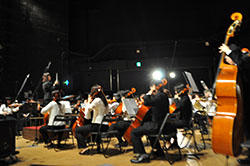
In connection with these objectives, Gifu University has agreements with 46 universities overseas, and hosts over 600 students and researchers from abroad annually. On campus there are always 300 or 400 international students. They can speak English at a level that the students newly joining the university today will understand, and more than a few of them are very fluent in Japanese. It may be a rare chance for you, so I suggest that you take the opportunity and interact with these international students. I also suggest that you take the earliest opportunity you can to go overseas. There are already students of the University who, as undergraduates, have entered international research contests, some of whom have won prizes. Gifu University has effective frameworks in place to assist students in taking on such international challenges.
Lastly, I would like to note the commitment on our part as members of the faculty. Gifu University is a place where students can become citizens capable of achieving the ideals I just mentioned. It goes without saying that faculty members work towards these ideals alongside new students. Let us join hands in our efforts to be good members of the university community in the years to come.
Let me conclude my remarks by wising you a fulfilling, enjoyable campus life here at Gifu University. Again, congratulations on your admission to the University.
April 7, 2016
Hisataka Moriwaki
President of Gifu University
